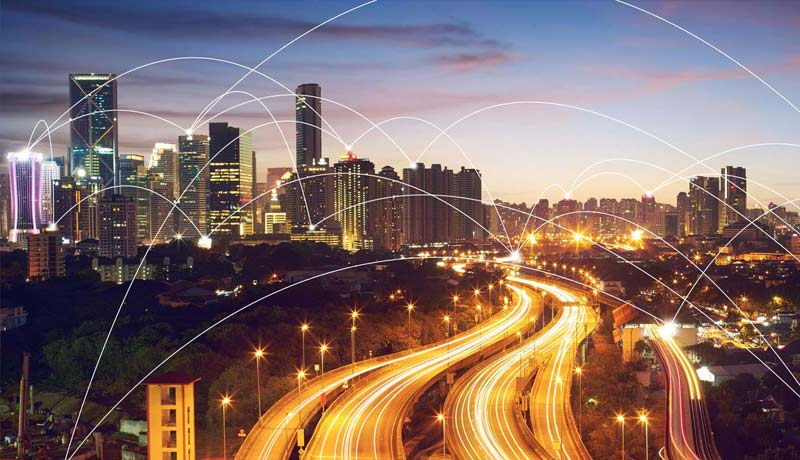
By Rabab Zehra, Executive Editor, TECHx Media
Imagine a futuristic city with self-driving cars, cool-looking residences run by robots, traffic-responsive street lights, efficient waste management,and moving walkways that transport you directly to your destination instead of walking.
Does any of this sound familiar to you?
Well, these were the most common responses when I asked a bunch of mates how they would envision a smart city.
To put it another way, the idea of a smart city isn’t all that different from what we now have. A smart city is all about connectivity, just as everything around us is connected in some manner, whether it’s galaxies in the sky, rivers and oceans on Earth, cities and countries, etc. The term ‘smart city’ might be new to many but the idea isn’t.
An ideal smart city will have every bit of hardware and software connected to the Internet of Things (IoT). On top of that, smart cities include infrastructure that can automatically respond to changing population demands in addition to connecting people. Smart cities also focus on issues concerning urban development, the distribution of infrastructures, energy supply, accessibility and mobility, promoting alternative modes of transport other than cars and, when there is no choice but to use them, they encourage the use of electric vehicles.
Middle Eastern cities are undergoing a transformation. The capabilities of technology and data are being leveraged to make cities safer, more economical and ecological. One of the most significant challenges associated with smart cities is preparing people for them. The question is, are we truly prepared for smart cities?

I asked Louis Frederic Robin, Head of Low Carbon Cities & Public Lighting Business Platform Energy Solutions, ENGIE Solutions, last week at ‘Smart Cities and Communities of Tomorrow’. He said: “Only a few people understand what a smart city is. First, we must define what it is for them, and we are now struggling in this. Many citizens deserve smart cities; therefore, if we make this apparent, citizens will demand that their city become smart as well.”
“To be smart, you must be digital. We are now accustomed to being digital, with our mobile phones in our hands at all times. All that remains is for us to shift from this hand digital to a new digital layer known as ‘smart city,’” Louis added.
Automobile major Toyota and tech giants such as Google, Amazon, Microsoft, Toshiba or Cisco are building smart cities in various parts of the world.
We are currently in between being absolutely naive about the concept of smart cities and being perfectly equipped to live in one. It is clear that smart cities will play a key role in sustaining and managing urban populations as well as sparking social transformation, efficiency, and sustainability for many countries today. Smart cities will continue to innovate, and this will make it even more imperative that their citizens become smart.
We still have a long way to go before we can genuinely embrace smart cities, particularly in terms of culture and behaviour. But I am quite optimistic as I consider it is an exciting process if it is carefully regulated. We’re on the right track, and it will most likely continue for another decade. To stick, we must proceed with caution.
